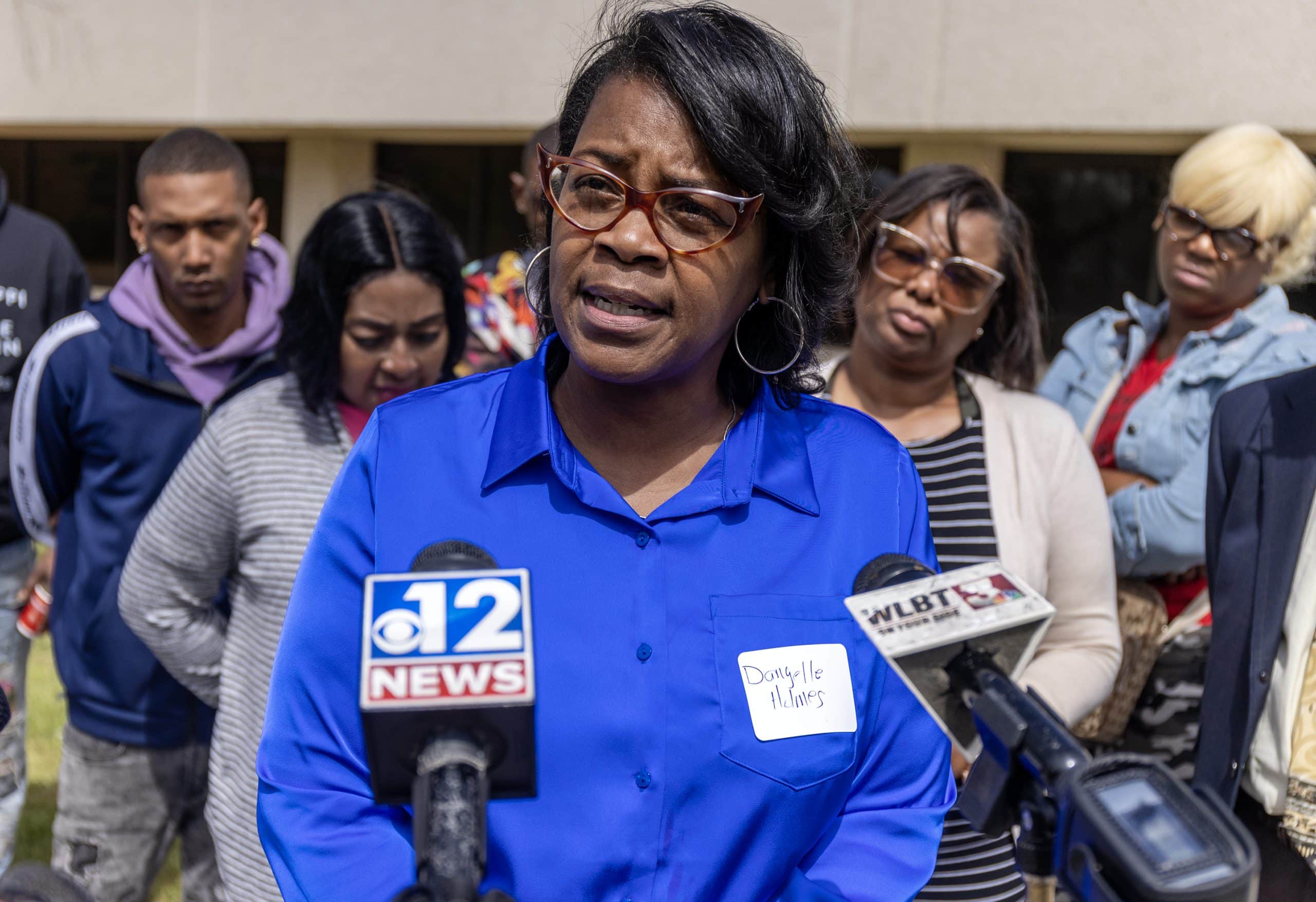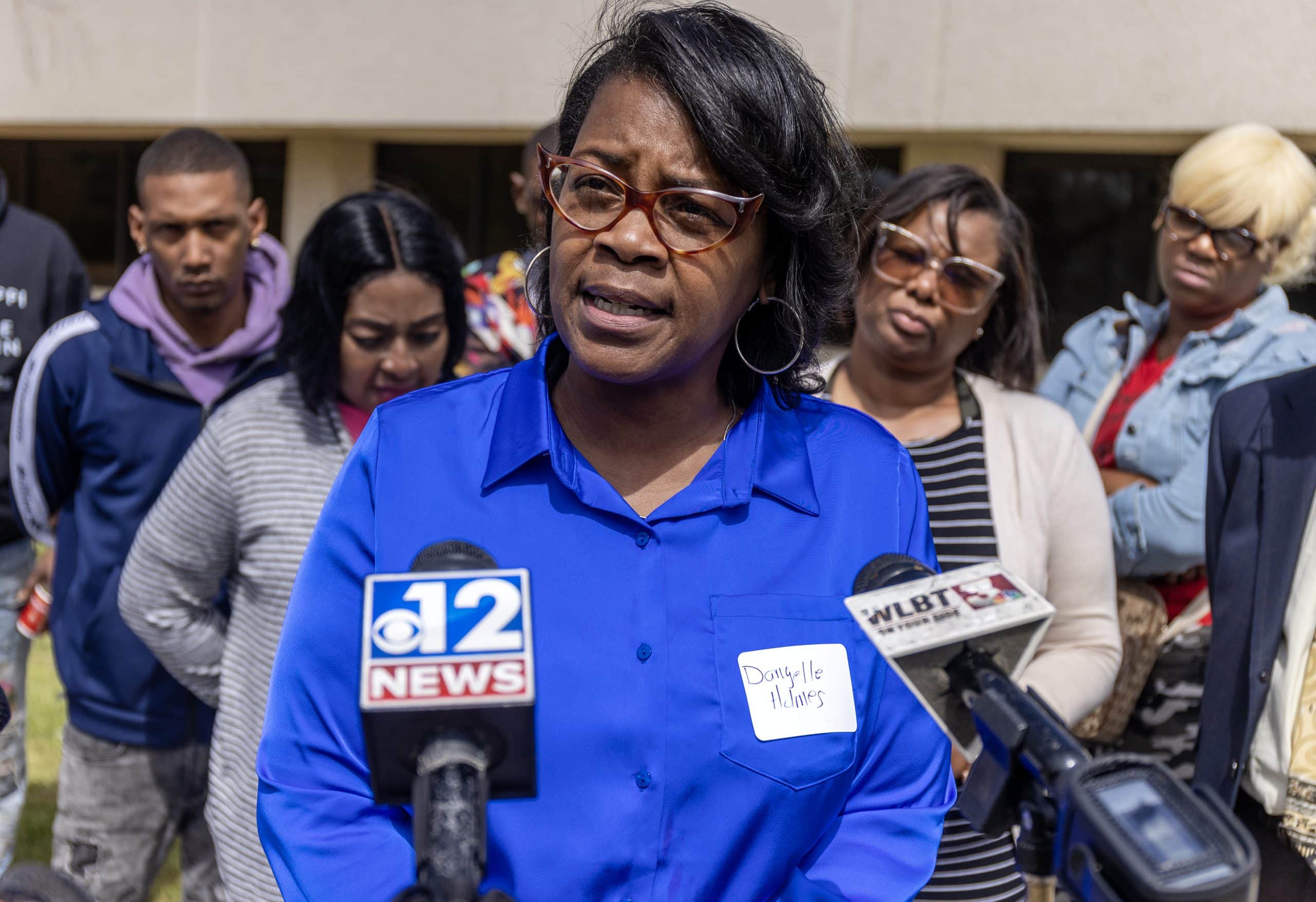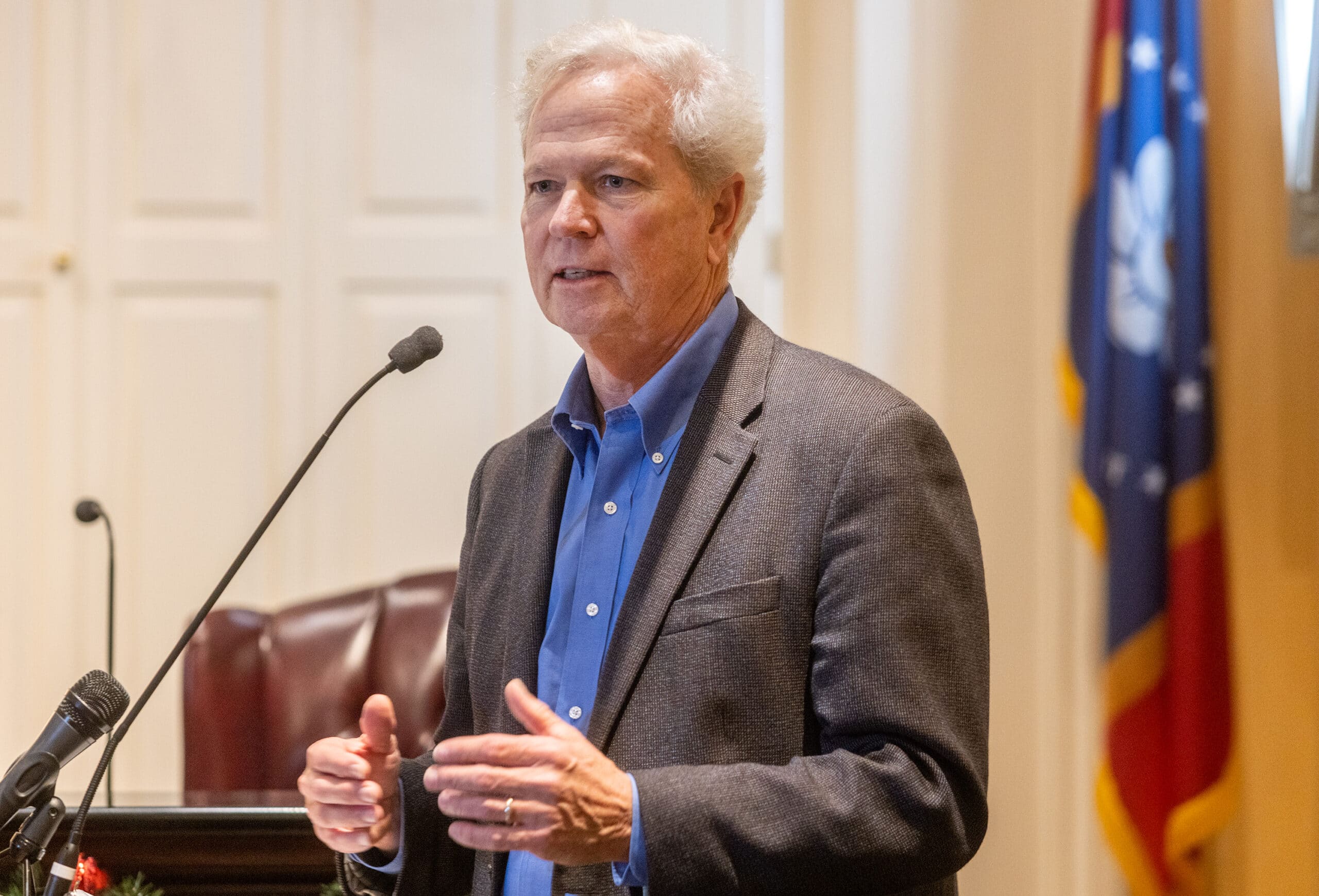Mississippi Today
Federal judge hears residents’ input on JXN Water’s work thus far


The U.S. District Court audience saw the gamut of Judge Henry Wingate’s moods over a two-day status conference updating him on the latest with Jackson’s water system.
The tedious proceedings covered a wide range of issues Wingate sought answers to, including water quality and public engagement.
Wingate initially called the conference after City Attorney Catoria Martin relayed in previous meetings that members of the public were concerned with how the system has been handled in the seven months since third-party manager Ted Henifin assumed control of Jackson’s water utility.
At times, the Jackson-native judge was affable, sharing memories of marching with Medgar Evers and serving on a board at Tougaloo College. Other times, he was less patient. Wingate called out Jackson Mayor Chokwe Antar Lumumba multiple times, including over having side conversations and for using his cellphone during proceedings, despite others having their phones out as well.
Advocates and community members, as they told the court, are specifically frustrated over how little communication there’s been between Henifin’s company, JXN Water, and the public about how money has been spent, how contract work has been decided, and Henifin’s persistent statements that the water is safe to drink despite residents seeing discolored and odorous water from their taps.

Rukia Lumumba, co-founder of the Mississippi Rapid Response Coalition — as well as Jackson Mayor Chokwe Antar Lumumba’s sister — requested Wingate allow a community ambassador to engage with the court and Jackson water in future decision-making.
“We’re too often only considered after decisions have been made,” she said about public involvement.
Rukia Lumumba, who also is a candidate for House District 72 in Hinds and Madison counties, requested that Wingate make JXN Water subject to public record laws. Despite having control of a public utility and spending government dollars, JXN Water is a non-government entity and has broad authority under Wingate’s order last year. The company isn’t subject to public record or contract procurement laws.
Danyelle Holmes, National Social Justice organizer with the Mississippi Poor People’s Campaign, asked Wingate to release all contracts, salaries and resumes of companies JXN Water has hired thus far.
With a small staff of just five employees, Henifin said his plan is to rely heavily on contracting to carry out the water system rehabilitation.
Based on press releases and events, JXN Water has publicized at least three contracts it’s executed: one with Stantec to repair water line leaks, one with a call center in Rankin County to create a 24/7 helpline, and another with Jacobs Engineering to staff the water treatment plants.
Otherwise, JXN Water has put out little information about its contracts, such as what bids they’ve received, exact terms of the contracts and other details that a government entity would have to share with taxpayers.
Residents also told Wingate they were disappointed that Henifin hired out-of-state companies for contracts and didn’t establish a call center in Jackson. Henifin responded that his priority is to work with qualified companies who can help immediately. He added that he’s worked with local firms whenever possible and will continue to seek work from Black-owned businesses.

Wingate and Henifin continually pointed to the progress that’s been made in a short period: nearly 200 water leak repairs, 90 valves closed and normal water pressure for almost every home. Henifin said some homes in south Jackson still have pressure issues because of their distance from the treatment plant, and that he’s planning to eventually put those homes on the city’s well system.
Water quality
After last month’s status conference when Henifin repeated that the water is safe to drink, residents expressed skepticism to the media and in social media posts, showing images of brown water from their taps.
Color and odor are what Henifin called “secondary” standards, meaning they don’t indicate the water is unsafe to drink. But as Rukia Lumumba told the court Thursday, residents might not know that, and she suggested holding educational sessions to explain the city’s water testing and why it’s safe despite appearances.
“If I’m looking at brown water, I wouldn’t think it’s safe,” Holmes said in her testimony.
Wingate responded that he wouldn’t want to drink that water either.

Holmes also argued that, just because water is safe leaving the plant, it doesn’t mean that the water is safe at people’s homes, where aging pipes are more likely to carry lead. In response, Wingate questioned who should be responsible for fixing pipes on private property. Later in the hearing, Martin, the city’s attorney, said that, while the city couldn’t spend its own money to fix pipes on private property, there are federal programs that make such funding available, including $15 billion from the Bipartisan Infrastructure Law.
‘We still have much room for improvement‘
Speakers during the status conference emphasized they wanted Jacksonians to have more involvement in Henifin’s decision-making, and that they felt let down with how little public engagement there’s been from JXN Water in recent months.
Brooke Floyd, director of the JXN People’s Assembly, said she lost pressure or water completely three times in the last month and a half at her northeast Jackson home. She wondered why she hadn’t received a boil water notice, which she’d typically finds on the state Department of Health’s website.
Henifin has tried to overhaul the way the city issues boil water notices. In the past, he explained, the city could only test water pressure from its treatment plants and couldn’t narrow down which parts of Jackson actually needed to boil their water.
Despite establishing a new 24/7 call center — which residents can reach at (601) 500-5200 — Henifin admitted “we still have much room for improvement with communications.” He also said in a press release that JXN Water has a “blind spot” in keeping Latino residents informed.
This article first appeared on Mississippi Today and is republished here under a Creative Commons license.
Mississippi Today
On this day in 1977, Alex Haley awarded Pulitzer for ‘Roots’

April 19, 1977

Alex Haley was awarded a special Pulitzer Prize for “Roots,” which was also adapted for television.
Network executives worried that the depiction of the brutality of the slave experience might scare away viewers. Instead, 130 million Americans watched the epic miniseries, which meant that 85% of U.S. households watched the program.
The miniseries received 36 Emmy nominations and won nine. In 2016, the History Channel, Lifetime and A&E remade the miniseries, which won critical acclaim and received eight Emmy nominations.
This article first appeared on Mississippi Today and is republished here under a Creative Commons Attribution-NoDerivatives 4.0 International License.![]()
Mississippi Today
Speaker White wants Christmas tree projects bill included in special legislative session

House Speaker Jason White sent a terse letter to Lt. Gov. Delbert Hosemann on Thursday, saying House leaders are frustrated with Senate leaders refusing to discuss a “Christmas tree” bill spending millions on special projects across the state.
The letter signals the two Republican leaders remain far apart on setting an overall $7 billion state budget. Bickering between the GOP leaders led to a stalemate and lawmakers ending their regular 2025 session without setting a budget. Gov. Tate Reeves plans to call them back into special session before the new budget year starts July 1 to avoid a shutdown, but wants them to have a budget mostly worked out before he does so.
White’s letter to Hosemann, which contains words in all capital letters that are underlined and italicized, said that the House wants to spend cash reserves on projects for state agencies, local communities, universities, colleges, and the Mississippi Department of Transportation.
“We believe the Senate position to NOT fund any local infrastructure projects is unreasonable,” White wrote.
The speaker in his letter noted that he and Hosemann had a meeting with the governor on Tuesday. Reeves, according to the letter, advised the two legislative leaders that if they couldn’t reach an agreement on how to disburse the surplus money, referred to as capital expense money, they should not spend any of it on infrastructure.
A spokesperson for Hosemann said the lieutenant governor has not yet reviewed the letter, and he was out of the office on Thursday working with a state agency.
“He is attending Good Friday services today, and will address any correspondence after the celebration of Easter,” the spokesperson said.
Hosemann has recently said the Legislature should set an austere budget in light of federal spending cuts coming from the Trump administration, and because state lawmakers this year passed a measure to eliminate the state income tax, the source of nearly a third of the state’s operating revenue.
Lawmakers spend capital expense money for multiple purposes, but the bulk of it — typically $200 million to $400 million a year — goes toward local projects, known as the Christmas Tree bill. Lawmakers jockey for a share of the spending for their home districts, in a process that has been called a political spoils system — areas with the most powerful lawmakers often get the largest share, not areas with the most needs. Legislative leaders often use the projects bill as either a carrot or stick to garner votes from rank and file legislators on other issues.
A Mississippi Today investigation last year revealed House Ways and Means Chairman Trey Lamar, a Republican from Sentobia, has steered tens of millions of dollars in Christmas tree spending to his district, including money to rebuild a road that runs by his north Mississippi home, renovate a nearby private country club golf course and to rebuild a tiny cul-de-sac that runs by a home he has in Jackson.
There is little oversight on how these funds are spent, and there is no requirement that lawmakers disburse the money in an equal manner or based on communities’ needs.
In the past, lawmakers borrowed money for Christmas tree bills. But state coffers have been full in recent years largely from federal pandemic aid spending, so the state has been spending its excess cash. White in his letter said the state has “ample funds” for a special projects bill.
“We, in the House, would like to sit down and have an agreement with our Senate counterparts on state agency Capital Expenditure spending AND local projects spending,” White wrote. “It is extremely important to our agencies and local governments. The ball is in your court, and the House awaits your response.”
This article first appeared on Mississippi Today and is republished here under a Creative Commons Attribution-NoDerivatives 4.0 International License.
Mississippi Today
Advocate: Election is the chance for Jackson to finally launch in the spirit of Blue Origin

Editor’s note: This essay is part of Mississippi Today Ideas, a platform for thoughtful Mississippians to share fact-based ideas about our state’s past, present and future. You can read more about the section here.
As the world recently watched the successful return of Blue Origin’s historic all-women crew from space, Jackson stands grounded. The city is still grappling with problems that no rocket can solve.
But the spirit of that mission — unity, courage and collective effort — can be applied right here in our capital city. Instead of launching away, it is time to launch together toward a more just, functioning and thriving Jackson.
The upcoming mayoral runoff election on April 22 provides such an opportunity, not just for a new administration, but for a new mindset. This isn’t about endorsements. It’s about engagement.
It’s a moment for the people of Jackson and Hinds County to take a long, honest look at ourselves and ask if we have shown up for our city and worked with elected officials, instead of remaining at odds with them.
It is time to vote again — this time with deeper understanding and shared responsibility. Jackson is in crisis — and crisis won’t wait.
According to the U.S. Census projections, Jackson is the fastest-shrinking city in the United States, losing nearly 4,000 residents in a single year. That kind of loss isn’t just about numbers. It’s about hope, resources, and people’s decision to give up rather than dig in.
Add to that the long-standing issues: a crippled water system, public safety concerns, economic decline and a sense of division that often pits neighbor against neighbor, party against party and race against race.
Mayor Chokwe Antar Lumumba has led through these storms, facing criticism for his handling of the water crisis, staffing issues and infrastructure delays. But did officials from the city, the county and the state truly collaborate with him or did they stand at a distance, waiting to assign blame?
On the flip side, his runoff opponent, state Sen. John Horhn, who has served for more than three decades, is now seeking to lead the very city he has represented from the Capitol. Voters should examine his legislative record and ask whether he used his influence to help stabilize the administration or only to position himself for this moment.
Blaming politicians is easy. Building cities is hard. And yet that is exactly what’s needed. Jackson’s future will not be secured by a mayor alone. It will take so many of Jackson’s residents — voters, business owners, faith leaders, students, retirees, parents and young people — to move this city forward. That’s the liftoff we need.
It is time to imagine Jackson as a capital city where clean, safe drinking water flows to every home — not just after lawsuits or emergencies, but through proactive maintenance and funding from city, state and federal partnerships. The involvement of the U.S. Environmental Protection Agency in the effort to improve the water system gives the city leverage.
Public safety must be a guarantee and includes prevention, not just response, with funding for community-based violence interruption programs, trauma services, youth job programs and reentry support. Other cities have done this and it’s working.
Education and workforce development are real priorities, preparing young people not just for diplomas but for meaningful careers. That means investing in public schools and in partnerships with HBCUs, trade programs and businesses rooted right here.
Additionally, city services — from trash collection to pothole repair — must be reliable, transparent and equitable, regardless of zip code or income. Seamless governance is possible when everyone is at the table.
Yes, democracy works because people show up. Not just to vote once, but to attend city council meetings, serve on boards, hold leaders accountable and help shape decisions about where resources go.
This election isn’t just about who gets the title of mayor. It’s about whether Jackson gets another chance at becoming the capital city Mississippi deserves — a place that leads by example and doesn’t lag behind.
The successful Blue Origin mission didn’t happen by chance. It took coordinated effort, diverse expertise and belief in what was possible. The same is true for this city.
We are not launching into space. But we can launch a new era marked by cooperation over conflict, and by sustained civic action over short-term outrage.
On April 22, go vote. Vote not just for a person, but for a path forward because Jackson deserves liftoff. It starts with us.
Pauline Rogers is a longtime advocate for criminal justice reform and the founder of the RECH Foundation, an organization dedicated to supporting formerly incarcerated individuals as they reintegrate into society. She is a Transformative Justice Fellow through The OpEd Project Public Voices Fellowship.
This article first appeared on Mississippi Today and is republished here under a Creative Commons Attribution-NoDerivatives 4.0 International License.![]()
-

 Mississippi Today7 days ago
Mississippi Today7 days agoLawmakers used to fail passing a budget over policy disagreement. This year, they failed over childish bickering.
-

 Mississippi Today7 days ago
Mississippi Today7 days agoOn this day in 1873, La. courthouse scene of racial carnage
-

 Local News7 days ago
Local News7 days agoSouthern Miss Professor Inducted into U.S. Hydrographer Hall of Fame
-

 News from the South - Alabama News Feed5 days ago
News from the South - Alabama News Feed5 days agoFoley man wins Race to the Finish as Kyle Larson gets first win of 2025 Xfinity Series at Bristol
-

 News from the South - Alabama News Feed6 days ago
News from the South - Alabama News Feed6 days agoFederal appeals court upholds ruling against Alabama panhandling laws
-

 News from the South - Texas News Feed7 days ago
News from the South - Texas News Feed7 days ago1 dead after 7 people shot during large gathering at Crosby gas station, HCSO says
-

 News from the South - Florida News Feed7 days ago
News from the South - Florida News Feed7 days agoJacksonville University only school with 2 finalist teams in NASA’s 2025 Human Lander Challenge
-

 News from the South - Missouri News Feed7 days ago
News from the South - Missouri News Feed7 days agoInsects as food? ‘We are largely ignoring the largest group of organisms on earth’



















































